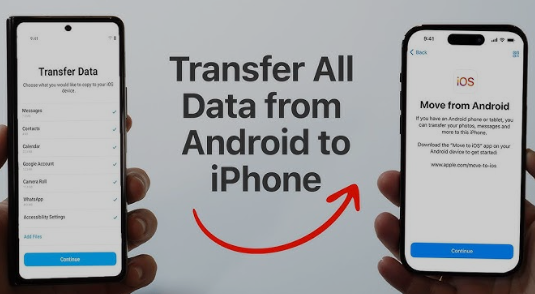Introduction
In today’s fast-paced digital world, businesses need robust mobile applications to stay competitive. A mobile app development company specializes in designing, developing, and deploying innovative mobile apps that cater to different business needs.
What is a Mobile App Development Company?
A mobile app development company is an organization that designs, develops, and maintains mobile applications for iOS, Android, and other platforms. These firms offer end-to-end services, from conceptualization to post-launch support.
Why Choose a Mobile App Development Company?
Hiring a professional mobile app development company ensures:
- Expertise in different technologies
- Cost-effective development solutions
- Enhanced security and compliance
- Faster time to market
- Ongoing support and maintenance
Key Services Offered by Mobile App Development Companies
A top mobile app development company provides services such as:
- Custom App Development
- UI/UX Design
- App Testing & Quality Assurance
- Enterprise App Development
- App Maintenance & Support
Native vs. Cross-Platform App Development
Choosing between native and cross-platform development depends on budget, performance needs, and target audience:
| Feature | Native Apps | Cross-Platform Apps |
| Performance | High | Moderate |
| Development Cost | Higher | Lower |
| Code Reusability | No | Yes |
| Time to Market | Longer | Faster |
Choosing the Right Mobile App Development Company
Key factors to consider include:
- Experience & Portfolio
- Client Testimonials & Reviews
- Technology Stack
- Cost & Budget Considerations
- Post-Launch Support
Top Technologies Used in Mobile App Development
| Technology | Purpose |
| Swift | iOS App Development |
| Kotlin | Android App Development |
| React Native | Cross-Platform Apps |
| Flutter | UI Framework |
| Firebase | Backend & Analytics |
The Mobile App Development Process
- Requirement Analysis
- Wireframing & Prototyping
- UI/UX Design
- Development
- Testing & QA
- Deployment & Maintenance
Costs Associated with Mobile App Development
The cost of app development depends on factors such as:
- Complexity
- Features & Functionality
- Development Time
- Team Expertise
| Type of App | Estimated Cost Range |
| Basic App | $10,000 – $50,000 |
| Medium Complexity App | $50,000 – $150,000 |
| Enterprise-Level App | $150,000+ |
Common Challenges in Mobile App Development
- Platform compatibility issues
- Security vulnerabilities
- Performance optimization
- User engagement & retention
Future Trends in Mobile App Development
- AI & Machine Learning Integration
- Augmented Reality (AR) & Virtual Reality (VR)
- Blockchain-based Apps
- 5G Optimization
How Mobile Apps Benefit Businesses?
- Increased customer engagement
- Higher sales & revenue
- Improved brand recognition
- Data-driven decision-making
Case Studies: Success Stories of Mobile App Development

Several businesses have grown exponentially using mobile apps. Examples include:
- Uber: Revolutionized transportation
- Instagram: Changed social media engagement
- Shopify: Boosted e-commerce businesses
Frequently Asked Questions (FAQs)
1. How long does it take to develop a mobile app?
App development timelines vary based on complexity, but most apps take 3-9 months.
2. What is the best platform for mobile app development?
iOS and Android are the top platforms, while React Native and Flutter offer cross-platform solutions.
3. How much does mobile app maintenance cost?
Maintenance costs can range from 15-20% of the total development cost per year.
4. Can I develop an app without coding knowledge?
Yes, platforms like Appgyver, Adalo, and Bubble allow no-code app development.
5. What factors affect mobile app development costs?
The cost depends on features, complexity, platform, and developer expertise.
6. Do mobile apps improve business revenue?
Yes, mobile apps help businesses by improving engagement, boosting sales, and enhancing user experience.
Conclusion
A mobile app development company plays a crucial role in creating innovative and high-performing applications. By understanding the latest trends, choosing the right service provider, and leveraging the right technologies, businesses can drive success through mobile applications.


